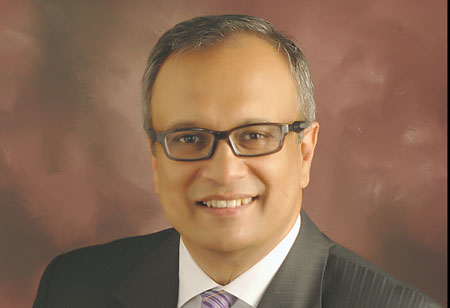Internet Governance and Capacity-Building Strategies for the Future
By Samiran Gupta, Head of India, ICANN

Samiran Gupta, Head of India, ICANN
Over the past two decades, the Internet has transformed our lives in ways we never thought possible. What was originally designed as a way to transfer data has transformed into a vital part of our day-to-day life, with almost half of the world’s population now connected to the Internet. Not only has it shaped the way we live our lives, but it has revolutionized business and international commerce. According to a study conducted by the Boston Consulting Group, countries with easy access to the Internet can see a 2.5% increase in their Gross Domestic Product (GDP). In Asia Pacific alone, yearly e-commerce sales total more than USD 870 billion, which is over 50% of last year’s total global digital e-commerce sales.
Who runs the Internet?
No single institution controls the Internet. The growth of the Internet has been facilitated by a concept of governance that seeks input from a wide variety of stakeholders, including businesses, academics, governments, civil society and end-users. The multi-stakeholder model of Internet governance is based on the idea that anyone who wishes to make a difference to the future of the Internet can join the discussion. This ensures that the Internet and Internet-related technologies can develop and evolve based on the desires and interests of those that use and rely on it.
A central player in the Internet multi-stakeholder ecosystem is the Internet Corporation for
Assigned Names and Numbers (ICANN). Formed in 1998, ICANN helps coordinate and support the Internet’s unique identifiers – names and numbers – across the world, and ensures that the Internet is secure, stable and interoperable. ICANN is only one of several important players in the Internet ecosystem. Others include the Internet Engineering Task Force (IETF), Internet Society (ISOC), Internet Architecture Board (IAB), Regional Internet Registries (RIRs), World Wide Web Consortium (W3C), regional associations of ccTLD operators such the Asia Pacific Top Level Domain Name Association (APTLD), and regional associations of network operators such as Network Operators Group for the Asia Pacific region (APOPS).
What’s next for the Internet?
An exciting future awaits the next billion Internet users. They are likely to be from developing nations such as India, China, Africa, small island-states across the world and South America. Their connectivity behavior and usage pattern - in terms of geographical spread, use of languages and scripts and types of devices - will be very different in comparison to current Internet users. As such, these new users will face unique challenges. For example, the availability of stable yet inexpensive bandwidth, local language content and applications that needs to be developed. Given these challenges, it is imperative that the next billion Internet users start to play a strong role in the global multi-stakeholder model.
How can the “next billion” contribute to the future of the Internet?
Here are three strategies that countries could consider:
- Harmonize Information and Communications Technology (ICT) initiatives to Internet
- Governance: Since almost all developing nations have ICT programs in place, it will be important to harmonize these initiatives to ensure that Internet governance is a part of the local framework.
- Develop/strengthen local multi-stakeholder model: Some nations have already adopted a multi-stakeholder engagement model for creating public policies. Others may need to develop these models. However, not all nations have local institutional capabilities to keep up with the fast-developing world of the Internet and Internet governance. Nations must self-organize their own internal models of Internet governance, by ensuring the wide participation of private and public stakeholder groups and creating transparent, decision-making mechanisms. Local institutions can also support their community leaders by participating in regional Internet governance discussions, such as their regional Internet Governance Forum (IGF), to shore up confidence.
- Deep regional coordination: Many of the developing nations are non English-speaking. Connecting their users to the Internet will require strong coordination amongst stakeholders, since many of the existing domain names are in the Latin script. There will be opportunities to accelerate the development and standardization of local language scripts in the Domain Name System (DNS), based on market demand. Local community leaders, experts in linguistics, and policy and technical experts will need to work together on such developments. Communities that use the same scripts will also need to coordinate with one another on such standards.
The Internet is one of mankind’s greatest technological advancements. Developing economies will only benefit from a free and open Internet, and have much to gain by actively participating in the multi-stakeholder model of Internet governance. The world awaits the voice of the next billion!




